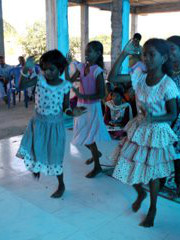
India (MNN) — Remember the rape case in New Delhi that got international attention?
Manohar Lal Sharm, the lawyer defending the six men who assaulted a young woman aboard a moving bus, says the victims are to blame for the attack.
"Until today, I have not seen a single incident or example of rape with a respected lady," said Sharma last week. "Even an underworld don would not like to touch a girl with respect."
This viewpoint isn't surprising to Brent Hample of India Partners.
"That attitude is very common in India," says Hample. "To blame a woman for dressing inappropriately or being in a certain place at a certain time: these are just not constructive, not helpful attitudes."
India's culture is a big part of the problem, he adds.
"India's a very patriarchal culture," says Hample. "Even before they're born, girls are discriminated against."
In a January 4 article, the BBC's Geeta Pandey in Delhi revealed the commonality of horrific abuse against women.
"On most days, Indian newspapers report shocking new atrocities: a 10-month-old raped by a neighbor in Delhi; an 18-month-old raped and abandoned in the streets in Calcutta; a 14-year-old raped and murdered in a police station in Uttar Pradesh; a husband facilitating his own wife's gang rape in Howrah," wrote Pandey.
"But in a country where a rape is reported every 21 minutes, even these most horrific of crimes soon get forgotten."
Female infanticide is commonplace in India; according to UNICEF–the UN's children's agency, some 50 million women are missing due to the killing of baby girls. Life doesn't get easier if girls make it past the womb, though; the challenges just take a different form.
About 2.5 million kids are trapped in India's commercial sex trade. And of Mumbai's 250,000 commercial sex workers, over a third are children under the age of 12. According to the government, 12.6 million children in India between the ages of 5 and 14 are employed as domestic help.
UNICEF estimates that the number of employed children in India is closer to 35 million, and that between 20-40% of them are domestic workers.
"The courts and the laws can do what they can, and that is a good thing, and people can pray for that. But the real lasting change, as we all know as Christians, comes from within." says Hample.
"Pray that God would just do a miracle within the culture of India [and] within the people of India — within their hearts."
India Partners helps women overcome the obstacles they face through a number of programs, including health care, tailoring school, and sponsorships. Click here to see how you can change a life.

